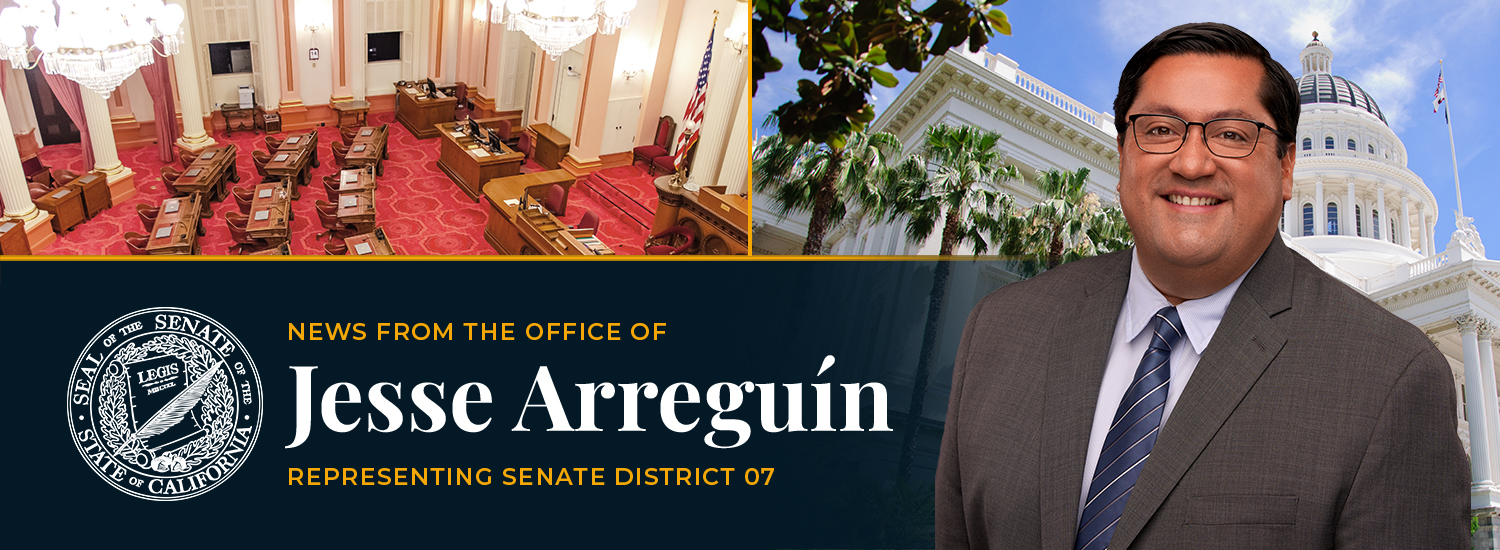
Governor Signs Bill Authorizing Regional Transit Measure
Sacramento, CA – Governor Gavin Newsom has signed Senate Bill (SB) 63, authored by Senators Jesse Arreguín (D-Oakland) and Scott Wiener (D-San Francisco). SB 63, the Connect Bay Area Act, authorizes a regional measure for the November 2026 election in five Bay Area Counties to fund public transit, and includes strong accountability measures. The bill would allow placement of a regional sales tax measure to fund transit operations in Alameda, Contra Costa, San Francisco, San Mateo, and Santa Clara Counties.
“As one of the many Bay Area residents who regularly uses public transit, ensuring that we have reliable and accessible transit systems is essential,” said Senator Jesse Arreguín. “I am grateful to the Governor for signing SB 63, which will empower voters to have a final say on the future of transit in the region.”
Since the COVID-19 pandemic, transit agencies have struggled to reach pre-pandemic ridership levels, with some facing potential fiscal insolvency by 2028. The looming fiscal cliff and deep cuts to transit would have devastating effects on California, leaving people stranded. A lack of transit would lead to more congestion on roads and worsen air quality, all while increasing economic inequality and reversing post-pandemic recovery statewide.
In the Bay Area, regional transit agencies are facing major budget deficits. BART is facing a $380 million deficit by 2026. Bay Area cuts could result in BART trains arriving every 60 minutes instead of the current 20 minutes, with no weekend service. MUNI, which provides transit services in San Francisco, faces a $320 million deficit by 2026. This could result in a 50% cut to service and elimination of discount programs relied on by students, seniors, and people with disabilities.
If approved by voters next year, a regional sales tax measure would provide funding for Bay Area transit agencies for the next 14 years. Key to SB 63 is the requirement for a Financial Efficiency Review of transit budgets and operations to look at ways to reduce costs and improve service. The bill also includes unprecedented accountability measures, including allowing the various counties taxed to withhold funding from operators if they fail to meet certain performance benchmarks.
Earlier this year, Senator Arreguín and Senator Wiener led efforts to provide short-term funding to address operating shortfalls for transit agencies. With the support of a broad coalition of over 60 organizations from across the state, including labor organizations, business groups, transit agencies, and environmentalists, the Legislature in June authorized a $750 million dollar short-term loan for Bay Area transit agencies. The proposal culminated with the passage of SB 105, which, calls on the Department of Finance to develop loans or other financing options to provide short-term financial assistance to Bay Area transit agencies including BART, MUNI, AC Transit, and Caltrain, which collectively account for 80% of the Bay Area’s transit ridership. This process must be completed by January 10, 2026, with the State Legislature to vote on approval shortly thereafter.
These funding proposals build upon previous efforts to secure transit operating funding, including the protection of $4 billion in previously committed transit capital funding and an additional $1.1 billion in new flexible emergency operations funding secured in the Budget Act of 2023.
###